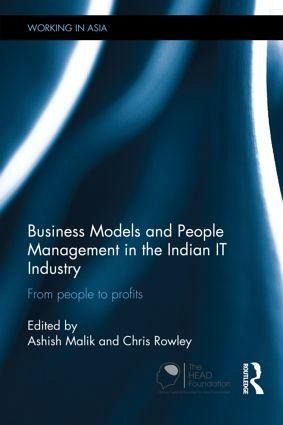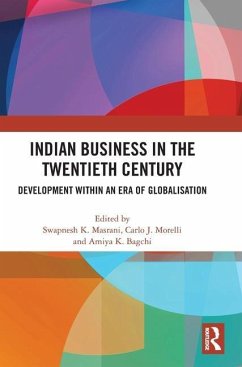
Business Models and People Management in the Indian IT Industry
From People to Profits
Herausgeber: Malik, Ashish; Rowley, Chris

PAYBACK Punkte
89 °P sammeln!
The global impact of so-called 'offshoring', including of information technology (IT) and related services, continues to be a topic of great interest to academics, practitioners and policy makers. The Indian IT industry has sustained high levels of growth in revenues and employment since the late 1980s. Even following the global financial crisis and meltdown in 2008, the industry has reported growth, albeit at a lower rate. Furthermore, the high rates of technological change and increased competition has forced businesses and managers to be innovative and create new business models. This book ...
The global impact of so-called 'offshoring', including of information technology (IT) and related services, continues to be a topic of great interest to academics, practitioners and policy makers. The Indian IT industry has sustained high levels of growth in revenues and employment since the late 1980s. Even following the global financial crisis and meltdown in 2008, the industry has reported growth, albeit at a lower rate. Furthermore, the high rates of technological change and increased competition has forced businesses and managers to be innovative and create new business models. This book examines how managers and entrepreneurs in the Indian IT industry have explored and exploited human capital opportunities at various stages of the industry's evolution to create innovative human resources (HR) practices and new business models. Based on extensive academic research and deep reflective practitioner accounts, this collection presents expert content, views and a coherent picture of the challenges and changes in the Indian IT industry and analyses how the industry has remained competitive in a constantly changing environment. This book will appeal to researchers, students and practitioners, particularly in the fields of human resources and strategic management.














